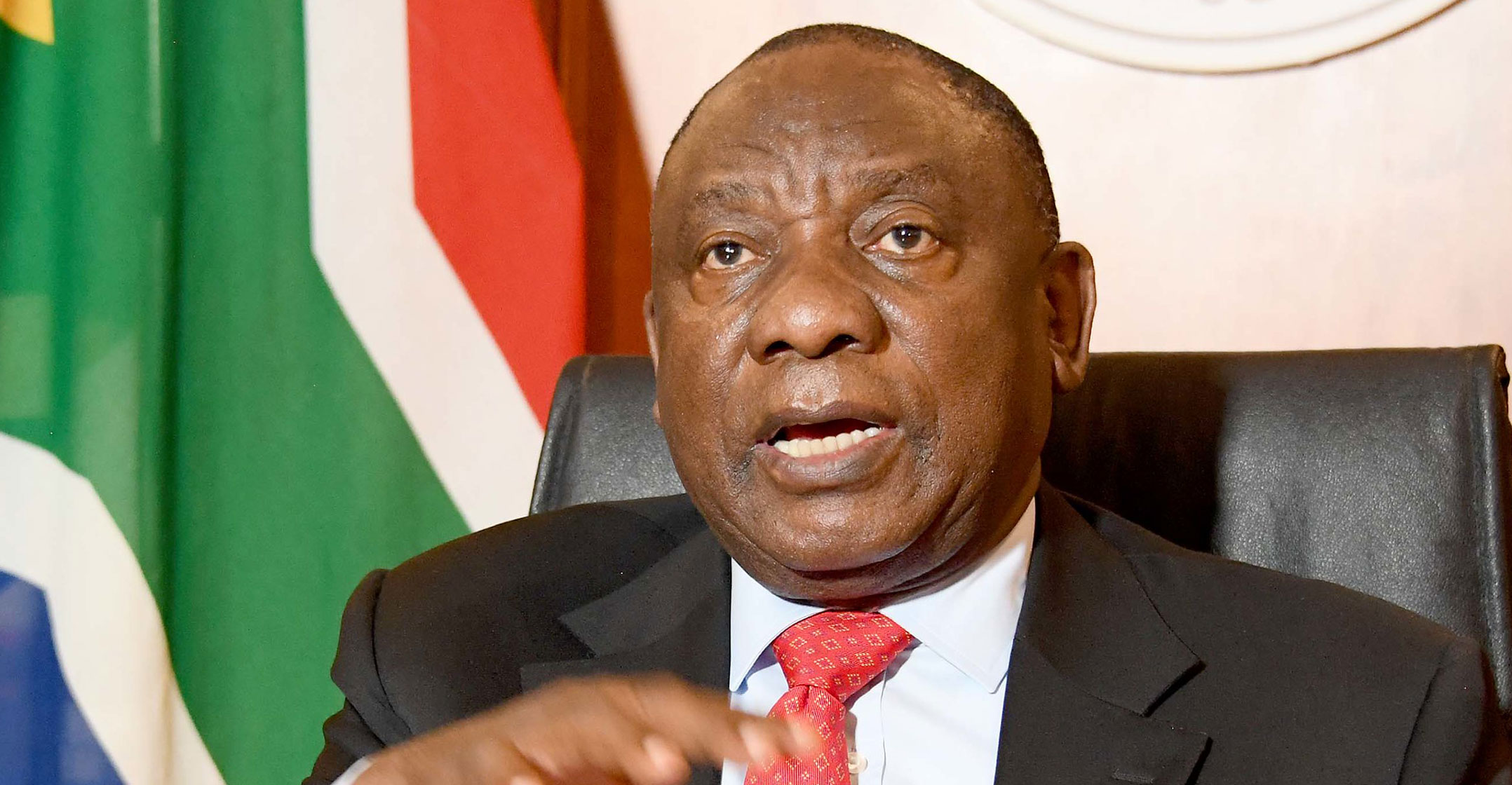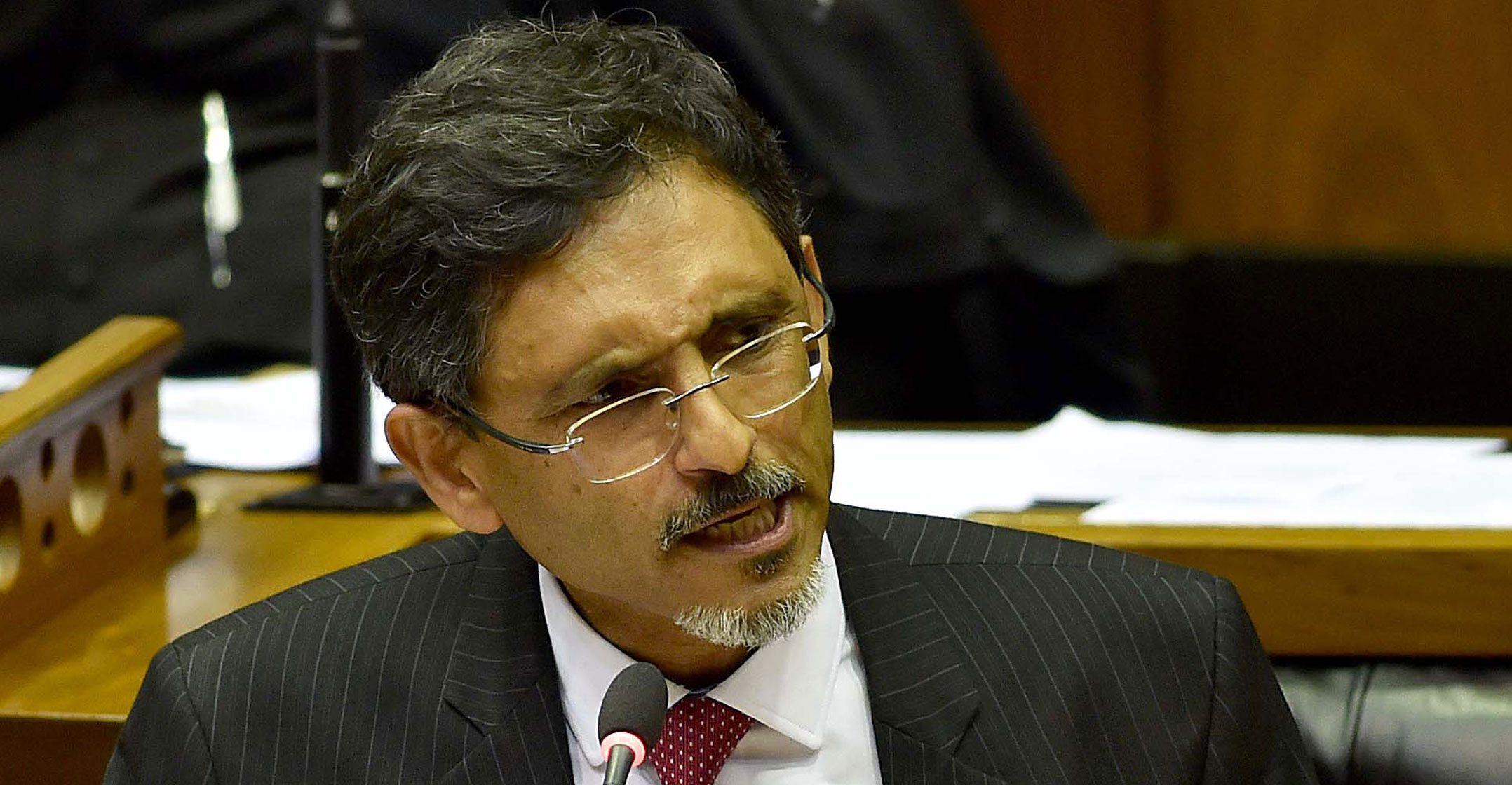
South African business leaders are becoming frustrated with the pace of reform under President Cyril Ramaphosa. His cabinet choices and spending pledges haven’t helped.
His ascension to national leader in February last year was greeted with so-called “Ramaphoria”, as the rand and government bonds surged on expectations he would reform the struggling economy, crack down on corruption and replace non-performing cabinet members. Much of that rally was relief at seeing the end of Jacob Zuma’s nine-year tenure marked by corruption and few policy decisions.
Patience for change in the business community is running out. Some key corporate figures say the cabinet Ramaphosa named after his May election victory hasn’t brought in enough fresh ideas, while his state-of-the-nation address in June was seen as full of feel-good spending pledges and no detail on funding.
“Very tough decisions have to be taken. We have not yet seen any willingness to take those decisions. Time lines are short and pressures intense,” said Martin Kingston, executive chairman of Rothschild & Co’s South African unit and vice president of the country’s main business lobby. “As a country we want to have our cake and eat it, and everyone else’s cake.”
While Ramaphosa vowed to save the struggling state power utility, he also promised bullet trains and a new city. That’s in a nation where most municipalities struggle to provide basic services like housing and sanitation, and after South Africa’s economy posted its biggest quarterly contraction in a decade. The last remaining investment grade rating at Moody’s Investors Service is under threat.
Forced to compromise
Kingston’s sentiments were echoed by three CEOs of large companies and a senior business association leader, all of whom declined to be identified as their organisations haven’t publicly commented. They all said Ramaphosa had been forced to compromise because of his narrow victory in a 2017 party election the opposition he faces from a faction within the ruling ANC that’s still loyal to Zuma.
Presidency spokeswoman Khusela Diko didn’t answer a call to her mobile phone.
Chief among the business leaders’ concerns were the appointments to head the education and labour ministries. Both posts are seen as key in a nation with one of the world’s worst-performing educational systems, a gaping skills shortage despite a 27% unemployment rate, and rigid labour laws that make it difficult to hire and fire workers and have boosted the power of unions.

Angie Motshekga, who has run the education portfolio since 2009, was reappointed to the post, while Thulas Nxesi, a former leader of the main teachers’ union, was moved to the ministry of labour & employment. Nxesi had been criticised for defending irregular government spending on Zuma’s private home while he was public works minister. A union leader is unlikely to ease labour laws to make it easier to do business, the business leaders said.
Ebrahim Patel, who’s economic development role was expanded to include trade & industry, had been criticised by some corporate leaders for intervening in the takeover of local retailer Massmart by US giant Wal-Mart to demand concessions.
Even two appointments that have been welcomed by business — bringing back Tito Mboweni as finance minister and Pravin Gordhan to public enterprises — are seen as short-term postings.
Mboweni has said he doesn’t want to stay in the position for too long and Gordhan, 70, has been attacked by the opposition Economic Freedom Fighters and the country’s anti-graft ombudsman for decisions, while heading the South African Revenue Service a decade ago. Even though they are regarded as sound economic choices, few major reforms have been made since they were first appointed last year.
Concern over the cabinet among the business leaders was compounded by Ramaphosa’s spending pledges in his 20 June speech. While he pledged to accelerate R230-billion in support for Eskom, he didn’t mention the job cuts and efficiency improvements the utility’s management says are needed.
‘Flabbergasted’
Christiaan Schutte, the CEO of South Africa’s biggest poultry producer, Astral Foods, was “flabbergasted” by talk of bullet trains and new cities when municipalities can’t provide basic services. In May, Astral said the inability of a municipality to supply one of its plants with water would cut profit by R85-million.
Of the 28 ministers Ramaphosa appointed, only six hadn’t served in cabinet before.
“We have many of the same economic players in similar or expanded portfolios,” Kingston said. “However, we don’t necessarily want the same policies. We have high hopes for meaningful change and urgent decision making and action.” — Reported by Antony Sguazzin and Roxanne Henderson, (c) 2019 Bloomberg LP

